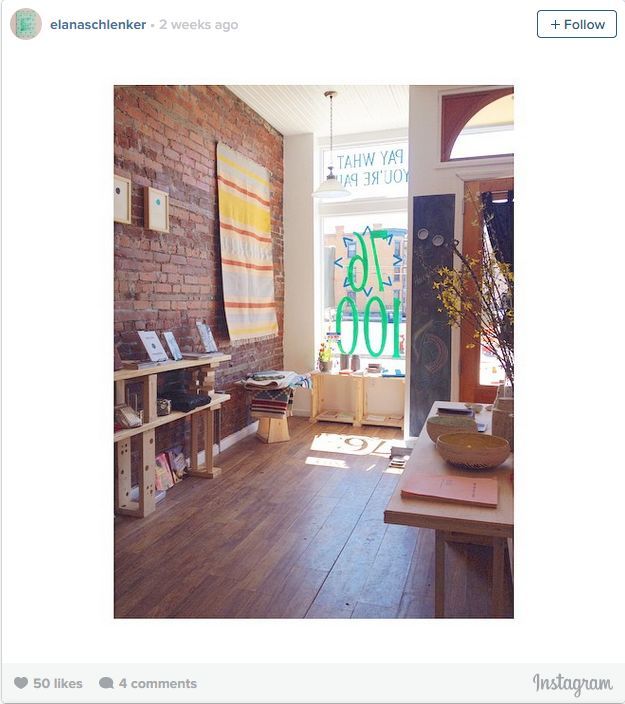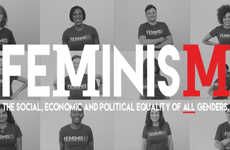
Less Than 100 Raises Awareness of Gender Wage Equality by Giving Women a Discount
Alyson Wyers — April 15, 2015 — Social Good
References: lessthan100.org & mashable
In an effort to promote gender wage equality, Elana Schlenker started a store where women only have to pay 76 cents to a man's $1. Less Than 100 is a pop-up shop in Pittsburgh that sells art, ceramics and paper crafts in the name of equality between the sexes. By focusing on selling goods made by independent makers, the retail space is a bit like Etsy. However, raising awareness about gender wage equality is its most distinctive feature.
Schlenker explains her conversation-sparking endeavor by saying it's not about discriminating against men by making them pay more, but giving women a discount reflecting the current wage gap in Pennsylvania (where women are paid 76 cents to every dollar a man earns in the same role).
Schlenker explains her conversation-sparking endeavor by saying it's not about discriminating against men by making them pay more, but giving women a discount reflecting the current wage gap in Pennsylvania (where women are paid 76 cents to every dollar a man earns in the same role).
Trend Themes
1. Gender Wage Equality Activism - Develop platforms and campaigns advocating for women's rights and gender pay equality, creating awareness among the public and driving policy changes.
2. Socially Conscious Retail - Create pop-up shops and retail spaces that promote gender and racial equality and positivity, sourcing goods from independent makers and creatives to build a like-minded community.
3. Community-focused Marketplace - Develop an e-commerce platform that connects independent makers, creatives, and artisans to consumers based on ethical standards, while building in a revenue-sharing model that redistributes wealth to minority communities.
Industry Implications
1. Retail - Incorporate social justice components into retail models including pop-up shops, brick-and-mortar, and e-commerce, championing equality in pricing and diversity in sourcing.
2. Creative Industry - Make underrepresented communities visible in the creative process, connecting them with both the creative industry and consumers to drive awareness and opportunities.
3. Social Sector - Partner with both government agencies and NGOs to develop initiatives to address workplace discrimination, and promote best practices for reducing the wage gap and increasing opportunities for marginalized individuals.
4.7
Score
Popularity
Activity
Freshness























